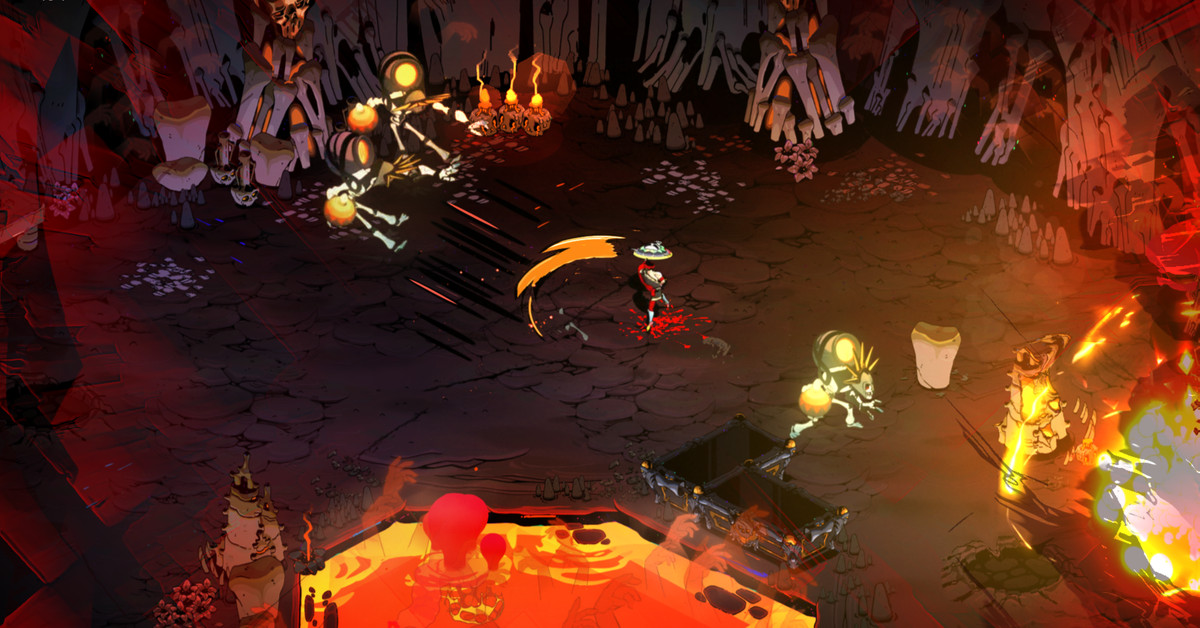
In most games, death feels like a waste of time. That’s true whether I die because I fail to react quickly enough, don’t have the right gear, or am just outmatched by the challenge before me. But in Hades, a new roguelike from Bastion maker Supergiant Games, losing against a horde of enemies or a challenging boss in my attempts to escape the Underworld rarely feels like a waste of time.
When I die in Hades, it’s usually after an exhilarating battle where I tried an unproven strategy. Those strategies evolve organically thanks to the frequent but unpredictable power-ups given out during a run. Instead of finding that unpredictability as a limitation, though, I’ve found it freeing. It encourages me to test unproven combinations of powers to unexpected and often surprisingly fun results.
Here’s one example. My favorite of the eight main weapons in Hades is the Shield of Chaos, a large shield with a powerful bash attack. I started a run ready to charge through some bad guys, but I was immediately disappointed to find that of the three choices offered for my very first upgrade, none of them would have improved that bash. Instead, I reluctantly picked an upgrade to my special attack, which lets me throw my shield so it can bounce between enemies, to hit more bad guys than usual.
Once, I became a shield-throwing monster
To my surprise, that was a really good choice, and the weapon became the cornerstone of my loadout. After pouring upgrades into that special attack, I became a shield-throwing monster — something that I didn’t even know was possible. And even though, yes, I eventually died, the frustration of losing dissipated quickly. I had just discovered a whole new way to play the game completely by accident.
Dying in Hades also means returning to the game’s home base, which is filled with engaging characters to talk to. Dusa, a skittish disembodied head, nervously flies away from me almost as soon as we start talking. Cerberus, a giant three-headed dog, happily accepts scritches. And home base also offers many ways to customize and change my loadout.
Those in-between moments mean that dying in Hades just isn’t that bad. The game’s constant sense of progression, no matter how well or poorly I do in each run, leaves me feeling empowered to experiment each time I play the game — because when I inevitably die, I can always try again.
